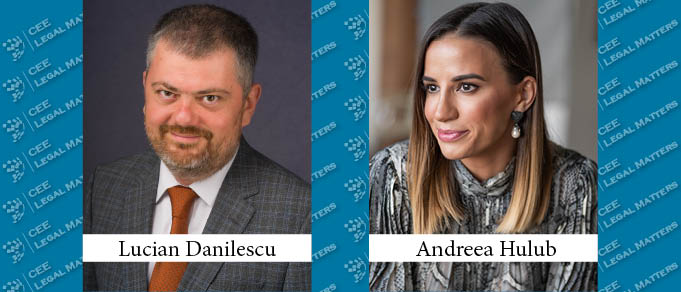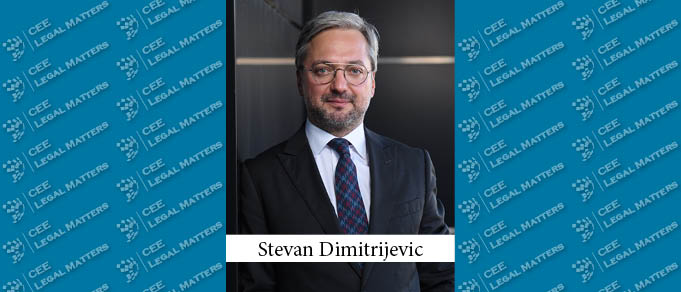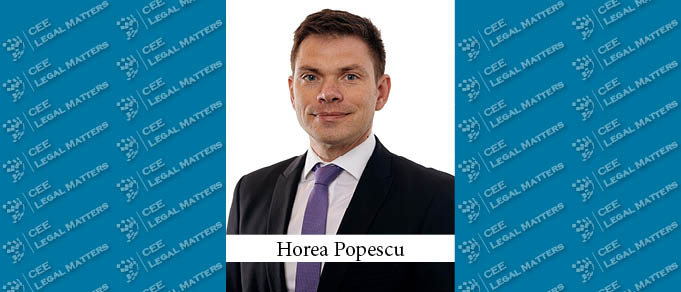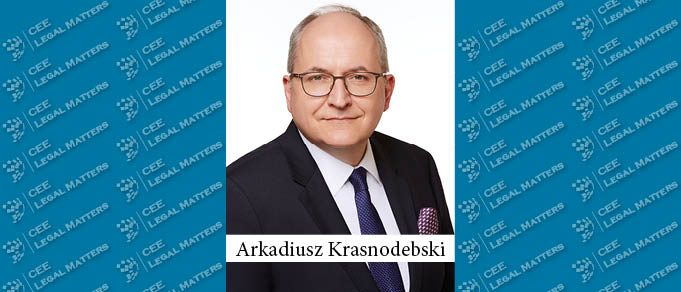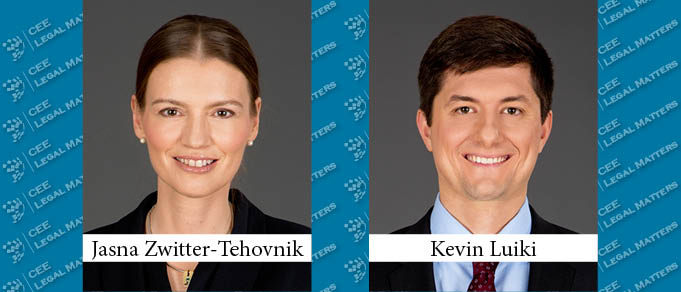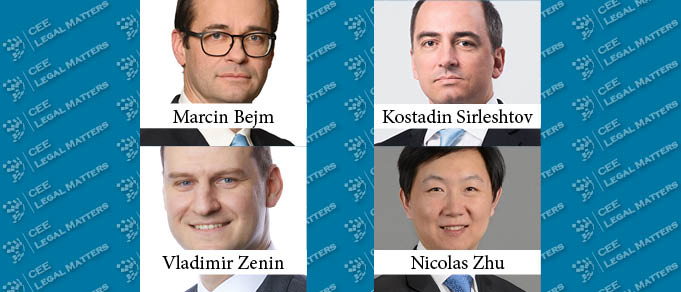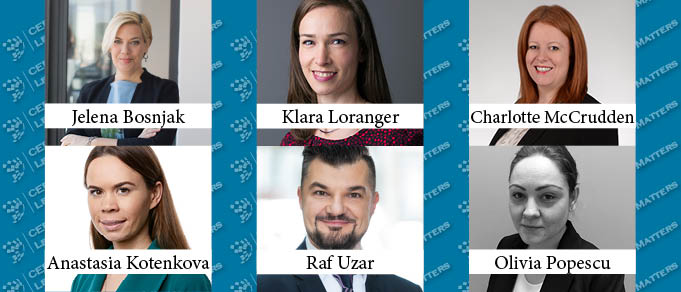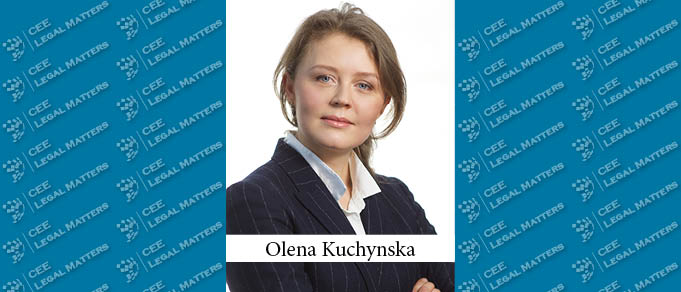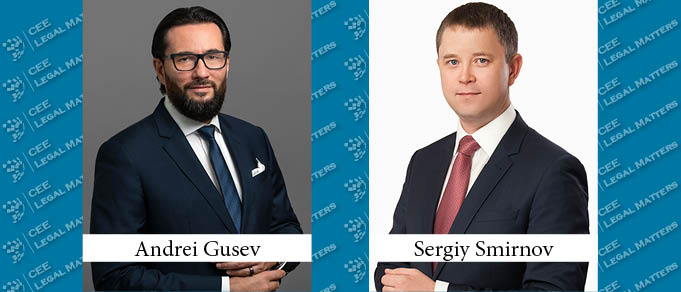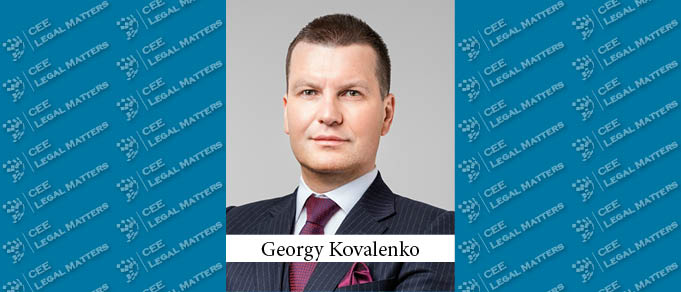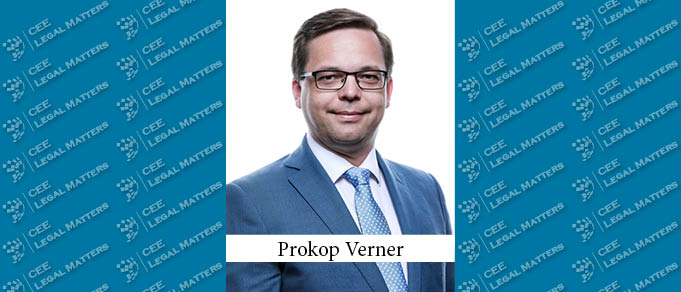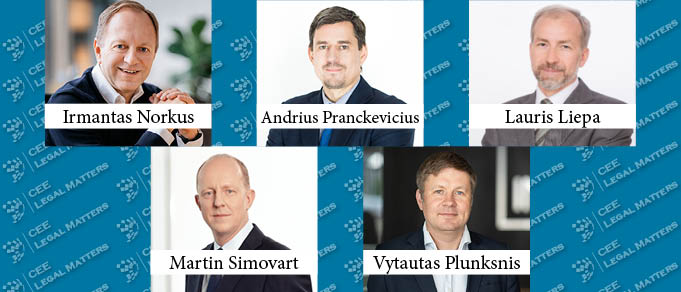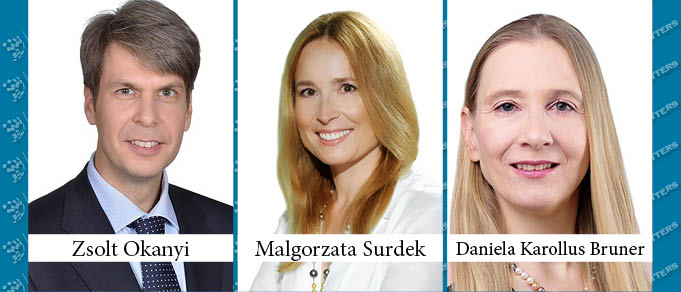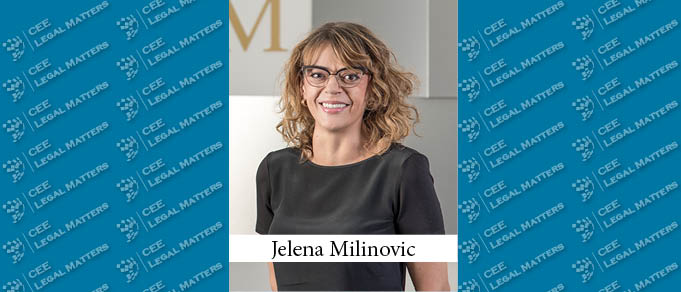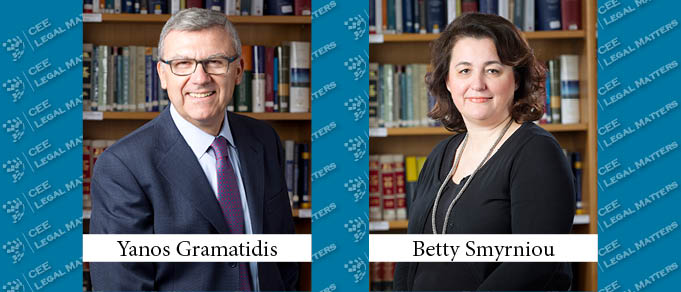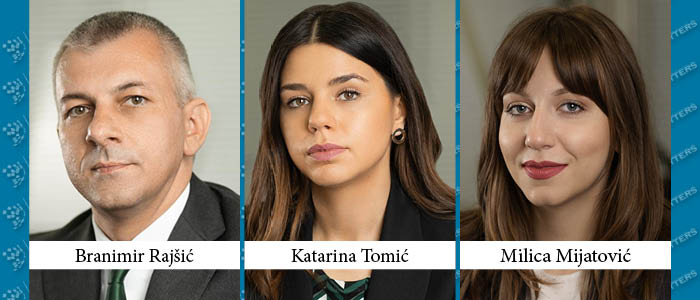Romania lies on the historically and geographically significant crossroads between the East and the West and both its roads and its waterways provide important routes for commerce between continents. It is no wonder, then, that the transportation, logistics, and infrastructures sectors in Romania offer high potential for growth and profit. The prospect of harnessing this potential has attracted investors from around the world – and law firms positioned to help them succeed. Danilescu Hulub & Partners, founded by Partners Lucian Danilescu and Andreea Hulub in April, 2020, is one such firm.
Guest Editorial: Legal Profession and Health
Analyses of the practical and economic impacts of the ongoing COVID-19 pandemic on the legal profession are abundant, and not much new can be added. Similarly, considerations of the economy and business in general are also often covered with elaborate views of the current situation and familiar projections of often gloomy futures.
An Unusual Year in Review: Our Annual Expert Round Table
On December 15, 2020 CEELM gathered legal experts from across the region for its annual Year-in-Review Round Table conversation. In a wide-ranging discussion, participants shared opinions and perspectives on their markets, on strong (and less-strong) practices across the region, and the effect of the COVID-19 crisis on both, as well as on how technology is changing the legal industry, and what the industry will look like in 2021.
Meaning of M&A in CEE
Horea Popescu, Managing Partner of CMS Bucharest and Head of CMS’s Corporate M&A Practice in CEE Looks Back at an Unusual Year.
Advising from Afar: Lawyering in a Time of Social Distancing
Within days of the coronavirus’s arrival in March, the Polish government was scrambling to react, with lockdowns, subsidies and stimulus, public health requirements, and other measures coming rapidly, on an ad hoc basis, with the need for speed making it difficult for Polish companies (and Poles in general) to keep up, and forming a patchwork of ideas rather than a comprehensive and coherent plan.
Guest Editorial: The Times They Are A-Changin’
The legal market in Europe is ever-changing, but now, as we approach the turn of the year, there is no doubt we are at a pivotal moment. One could say that the tide has risen and the world of legal services as we know it is gone. While it would be easy to blame everything on the pandemic, the COVID-19 crisis has merely accelerated certain processes that have been swelling up and ready to burst for quite some time. The trends we have been observing have just gained momentum. It is essential that law firms accept the challenges and prudently navigate the dangers.
The New Foreign Direct Investment Screening Regime Under Austrian and Slovenian Law
After many years of liberalization and globalization, recent years have shown a reversal of the European Union’s approach concerning foreign direct investment from third countries. As in much of the world, the EU has taken a more restrictive view than in the past, and this view is reflected on the legislative level with the FDI Screening Regulation.
The Chinese Belt and Road Initiative: Infrastructure Opportunities in CEE
The Chinese Belt and Road Initiative is one of the most ambitious development projects since the turn of the century. Through thousands of individual projects implemented under the BRI umbrella, China intends to develop land and sea corridors to support economic trade and development, integrate various regions of the world, and facilitate policy coordination, connectivity, unimpeded trade, financial services, and the connection of people. The BRI was launched in 2013, and last year was revamped with a new set of objectives.
Marketing Law Firm Marketing: Most Valuable Software Tool
New technologies are all the rage, as law firms adapt to the telecommuting and digitalization realities that accompanied the Covid-19 pandemic. Accordingly, we decided to ask our Law Firm Marketing experts from across the region a simple question: “What is the single most important/valuable piece of software you use?” As always, we asked respondents to focus on the question at hand, rather than – as we put it – using the question simply as an excuse to “tell us that their firms are awesome.” Not everyone was able to resist.
Guest Editorial: What is Changing in Lawyering in the Region
January is a perfect time to look back and plan for the future. To reconsider our accomplishments and learn our lessons. To think what could have been done better, more efficiently, or just in a different way. To set our expectations, make commitments, and dream big.
Between a Rock and a Hard Place: Practicing Law in Crimea
Since the Russian Federation’s annexation of Crimea in 2014, the peninsula in the Black Sea has been a minefield of conflicting international claims and interests, putting lawyers trying to work there, boxed in by the threat of sanctions from the West and counterveiling pressure from Moscow, in an untenable position.
Guest Editorial: Trends in the Russian Legal Market
Several important trends have appeared on the Russian legal market since 2014, the first year of EU/US sanctions and Russian countersanctions: 1) the growth in the market share of domestic law firms; 2) the in-sourcing of a large amount of legal work inside corporate legal departments; 3) the entrance of nonconventional players (such as banks and mobile operators) into the legal services market; and 4) the increased focus of lawyers on IT solutions and efficiency.
Guest Editorial: Trust
About a half year ago, I was sitting in a pitch meeting trying to impress a potential client to win an important mandate for a project that would take two years to close. The meeting was attended by top management of the company and by its founder. We discussed all the technical aspects, our past experience with similar projects, and how we worked as a team. We were hoping to come across as a unified team and show that we knew what we were doing. It was already the second round, so we focused on chemistry and relationship-building. At the end of the meeting we devoted a lot of time to discussing how important it is to be open and honest. I told the client that we would not just agree with them all the time – we would be honest with our fees upfront, we would tell them if we thought they were doing something wrong, we would treat them as friends and partners, we would tell them if we thought their instructions create more work than necessary, and, most importantly, we would always have smiles on our faces, even if we needed to tell them they are wrong.
No Blues in the Baltics: Irmantas Norkus Leads Cobalt to Success
In 2015, the word Cobalt took on a new meaning in the legal markets of Belarus, Estonia, Latvia, and Lithuania, when a new pan-Baltic law firm with that name opened its doors, immediately entrenched in the top tier of the region’s legal markets. That firm owes much of its success and reputation to the Managing Partner of its Lithuanian office and Chairman of the firm-wide Management Board, Irmantas Norkus.
Arbitration and Virtual Hearings: Contract Disputes in the COVID-19 Era
One of the most important issues facing businesses in CEE is the impact of the ongoing COVID-19 pandemic on litigation and arbitration. In-person court and arbitration hearings have become problematic, if not impossible, and the importance of certain boilerplate contract clauses has skyrocketed. Zsolt Okanyi, Global Head of Dispute Resolution at CMS, Malgorzata Surdek, Head of Dispute Resolution at CMS Poland, and Daniela Karollus Bruner, Head of Dispute Resolution at CMS Austria, evaluate the current situation.
Ground-Breaking the Law: JPM Launches Corporate Criminal Practice
Serbia’s JPM Jankovic, Popovic, Mitic has added a new practice to its offering – the first Corporate Criminal practice in Serbia. We reached out to JPM Partner Jelena Milinovic to learn more.
A Remote Possibility: Telecommuting During COVID-19
The COVID-19 crisis that has afflicted Europe throughout this unusual year has necessitated significant changes to the way lawyers work and communicate with and serve their clients. To find out how these changes played out in Greece, we spoke with Yanos Gramatidis, Head of Government & Privatization, and Betty Smyrniou, Head of Labor and Social Benefits and Aviation at Bahas, Gramatidis & Partners.
The Corner Office: Most Meaningful Charity or Pro Bono Commitment
In The Corner Office we ask Managing Partners across Central and Eastern Europe about their unique roles and responsibilities. The question this time: “What one ongoing pro bono initiative or project or charity/volunteering project that your firm is involved with has the most meaning for you personally, and why?”

